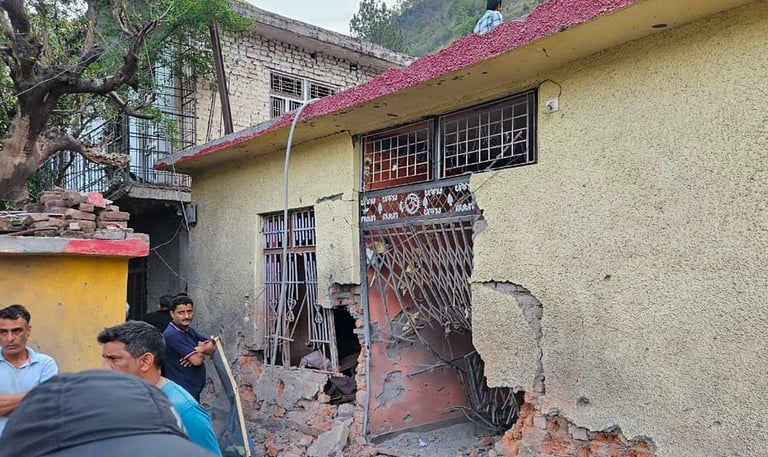Civilians Pay the Price as India and Pakistan Trade Fire
WORLD


In early May 2025, India and Pakistan once again found themselves on the brink of war. Following a deadly terror attack in Indian-administered Kashmir that killed 26 civilians, India launched “Operation Sindoor,” a series of strikes on what it described as terrorist camps in Pakistan-administered Kashmir.
Pakistan responded with its own missile barrage. As tensions escalated rapidly, it was not soldiers or politicians, but innocent civilians on both sides who paid the highest price.
According to Al Jazeera, Indian airstrikes in Pakistan-administered Kashmir reportedly killed 31 civilians, including women and children.
Meanwhile, The Telegraph India reports that retaliatory shelling from Pakistan left at least 15 civilians dead and over 40 injured in Indian-administered Kashmir.
Villages were flattened, homes were reduced to rubble, and families were forced to flee with nothing.
In Muzaffarabad, a resident named Muhammad Riaz told The Telegraph that his house was destroyed overnight, leaving him and his family homeless. “We barely survived,” he said. “There was no warning, no shelter, just fire and rubble.”
Reuters documented similar scenes in Indian border villages, where families returned to find their homes destroyed or uninhabitable. Many have been forced to live in makeshift tents while awaiting government aid. For those with livestock or small businesses, the losses are even more devastating.
Even foreign nationals were caught in the chaos. The Times UK reported that several British citizens visiting Kotli, in Pakistan-administered Kashmir, found themselves stranded in a war zone. Flights were canceled, roads were blocked, and communication was severely disrupted. One British child reportedly remained locked indoors for 72 hours due to continuous shelling in the area.
Despite the suffering, there is a glimmer of hope. A ceasefire was reached after diplomatic efforts from neutral parties, and groups like the Jammu & Kashmir Students Association have publicly welcomed the truce. The Times of India also reported on a rare joint appeal by feminist and civil society organizations in both countries, urging an end to the hostilities and calling for an international investigation into the Pahalgam attack.
While the guns may have fallen silent for now, the wounds run deep. The civilian toll is a stark reminder that this decades-old conflict continues to devastate lives on both sides of the border.
India and Pakistan must be held to a higher standard. Escalation may serve political narratives, but it destroys real lives. Peace must not be temporary or tactical—it must be lasting, people-centered, and rooted in justice.
The world must not forget the Riaz family in Muzaffarabad or the villagers left homeless in Kashmir.